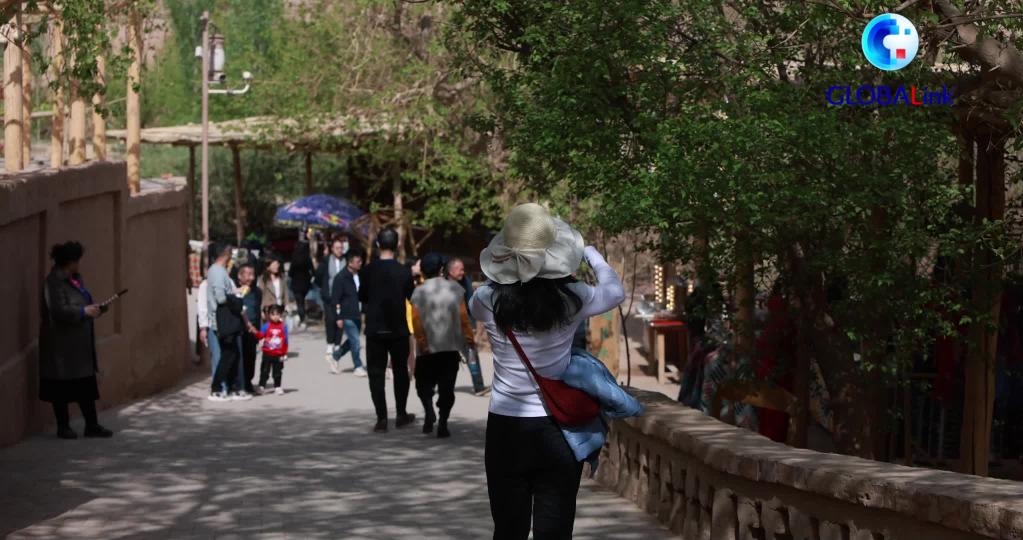
A woman and a child are seen at Lincoln Park Zoo surrounded by the fall colors in downtown Chicago, the United States, on Nov. 2, 2021. (Photo by Joel Lerner/Xinhua)
The experience of Black children is dramatically different than for any other race or ethnic group in the country. Almost 10 percent of Black children have one or both parents who are deceased.
NEW YORK, April 13 (Xinhua) -- When people think of orphaned children, they likely think of a bygone era in U.S. history when death, poverty, and orphanages were common. However, new numbers from the Census Bureau paint a picture of a modern-day United States where millions of children have lost one or both parents, reported The Hill on Wednesday.
The data release provides estimates of the percentage of children in the country who are paternal orphans (father has died), maternal orphans (mother has died), or double orphans (both parents are deceased).
The Census Bureau estimates that 4.3 percent of children (ages 0-17) in the United States have lost one or both parents due to death. Given that there are 74 million children in the United States, this means there are about 3.2 million paternal, maternal, or double orphans in the country, according to the report.
"The new Census numbers also indicate that the number of orphaned children in the United States has been growing rapidly in recent years," said the report. In 2014, the Census Bureau estimated there were about 2 million children who had lost a parent due to death (only about two-thirds of the current estimated number).
Additionally, the experience of Black children is dramatically different than for any other race or ethnic group in the country. Almost 10 percent of Black children have one or both parents who are deceased. For children whose race is white or Asian, the figures are 3.3 percent and 1.4 percent respectively. The figure for Hispanics (of any race) is 4.2 percent, it noted. ■












